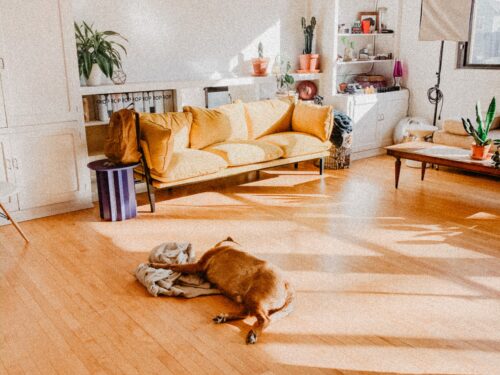
Which is better: hardwood, laminate, or vinyl?
Which is better: hardwood, laminate, or vinyl? This can be a difficult question to answer, but it all comes down to your personal preferences and needs. Each type of flooring comes with its own unique advantages and disadvantages. Let’s break those down now.
Hardwood Floors
Hardwood floors have been a popular option for centuries due to their timeless beauty, durability, and natural appeal. One of the most significant benefits of hardwood floors is their durability and strength. They are tough enough to withstand heavy foot traffic and can last for decades. Moreover, hardwood floors can be refinished multiple times if they get scratched or damaged.
However, hardwood floors require regular maintenance, such as sweeping, dusting, and polishing, to keep them shining and scratch-free. They can also be a significant investment and are considered one of the most expensive flooring options available.
Related Content: Light or dark floors in the kitchen?
Laminate Floors
Laminate floors are affordable, low maintenance, and available in a variety of styles and colors. One of the best features of laminate flooring is its likeness to hardwood flooring, at a fraction of the cost. Laminate floors are made up of several layers, including a high-density fiberboard core, a printed wood grain layer, and a protective wear layer. They are naturally resistant to moisture and scratches, making them an ideal choice for areas with high foot traffic or young children.
However, laminate floors cannot be refinished, and they need to be replaced when they start to show wear and tear. In other words, they may look just as good as hardwood flooring, but they definitely won’t last as long.
Related Content: Is hardwood flooring cheaper than laminate?
Vinyl Floors
Vinyl floors are durable, water-resistant, and perfect for high-traffic areas, such as kitchens, bathrooms, and laundry rooms. They are easy to install, and many styles come with a self-adhesive backing, eliminating the need for glue. One of the most attractive features of vinyl is its flexibility. It can be cut into any shape or size, and it comes in a wide range of colors, textures, and patterns. Moreover, vinyl is soft underfoot and absorbs sound, making it perfect for rooms with many activities.
However, vinyl floors can fade over time, and they are prone to scratches and scuffs. It is also much more likely that vinyl flooring will pull up, tear, or become damaged quicker than other flooring options.
Related Content: How much should I expect to pay for hardwood flooring?


